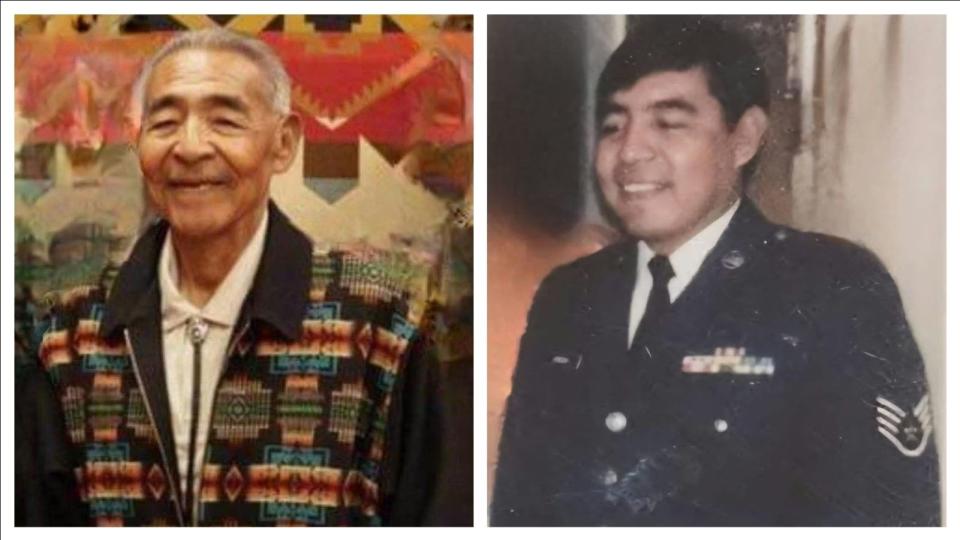ARAPAHO WARRIORS: Reflecting on Native American Heritage Month and Veterans Day
By Ben Ridgley
The Northern Arapaho Way of Soldiers regards them as chiefs of service, embodying a tradition of protection and honor that spans generations. Located on the Wind River Reservation in Wyoming, the Northern Arapaho have been serving in the U.S. Military since World War I. Even though the Arapaho people did not receive U.S. citizenship until 1924, they volunteered to serve in all military branches. The elders have always utilized their warrior protocols and a willingness to sacrifice when they served in the military. Some of them never came home, eventually leading to the development of Legion Posts that endure to this day. This was an honorum, not only for the military men but also the military women.
Throughout our culture, the soldiers are looked upon highly with military dances and honors in everyday life. The ancestral role of the warrior was to protect the people, the women, the children, and the land. This duty extended even to serving as scouts for the U.S. Army in the late 19th century—a pragmatic strategy employed by leaders to establish peace and secure the future of the tribe.
Many of the military service veterans volunteered and served for extended periods for their country. This profound dedication is symbolized by the Northern Arapaho Tribal Flag, which was created in 1936 specifically to honor and remember Arapaho war veterans. Our flag predates many similar national tributes.
When Veterans Day arrived, the tribe began to honor veterans with cultural dances, feasts, and utilizing their Legion Post. The ladies also had a veterans' society honoring their service in the military.

Nowadays, our veterans have developed more and more meaning for our people and are recognized in state and national events. The Arapaho Warriors participate in color guard situations, including Denver Broncos games. The dedication is tangible at the Path of Honor - Wind River Veterans Memorial in Fort Washakie, which specifically honors veterans from both the Northern Arapaho and Eastern Shoshone tribes. There, the winding red path symbolizes courage and a purposeful life, connecting modern service to the spirit of the ancient warrior.
Men and women perform their color guard duties, representing the tribe in these events. It is to be noted that the warriors are recognized upfront in cultural events, schools, and community events. With our abilities as Native people, we are honored by all these organizations from the state to the national level. They honor our significance in all aspects, and this is deeply honored throughout the nation. There is a connection from our past histories of warriorship to our endurance for survival and our presence today.
In the warrior tradition, we honor our warriors in many phases of traditions that we once inhabited. The ancestral traditions always highlighted hunting, fishing, and leadership for their clans and camps. Our tribal elders guided these traditions to help the warriors develop a better understanding of who they are.
We have many men and women serving in the armed forces today, and their motivation is rooted in a profound sense of duty—not just to the nation, but to their families and the future of their tribe. They carry the meaning of warriorship forward, ensuring that the people understand this vital legacy.
We in Indian Country come together, united with other tribal veterans, and support each other in community events to understand the veterans' unique cultural values. This allows us to also educate non-Native and other ethnic groups about who we are as tribal members, as well as being Arapaho. Many of our veterans carry on a tradition and practice to become a soldier, just as their father or mother did. This keeps the respect for warrior traditions alive today. Through these values of a veteran, it is acknowledged that the warriorship protocols of tribes have contributed to the practices used by the U.S. government and armies today, even in peace time.
The warriors of each tribe have contributed to America in a strong way, which helped its survival, such examples are the Code Talkers and code names. In wars, we utilized these cultural values with our sacred languages, which other countries could not understand. That is how we defeated other countries, most notably in World War II.
The tribe's contributions are intricate to all the accomplishments we have done as U.S. citizens, which plays an important role in America today. Names are given to develop motivation and bravery; this helps our soldiers today. They are given these names through our Native American values. Tribal names are being used such as in sports events and mascots, which are all honored today. especially being Arapaho. This is the greatest value in our warrior history today, not only for the tribes but for the United States of America - to be honored.
